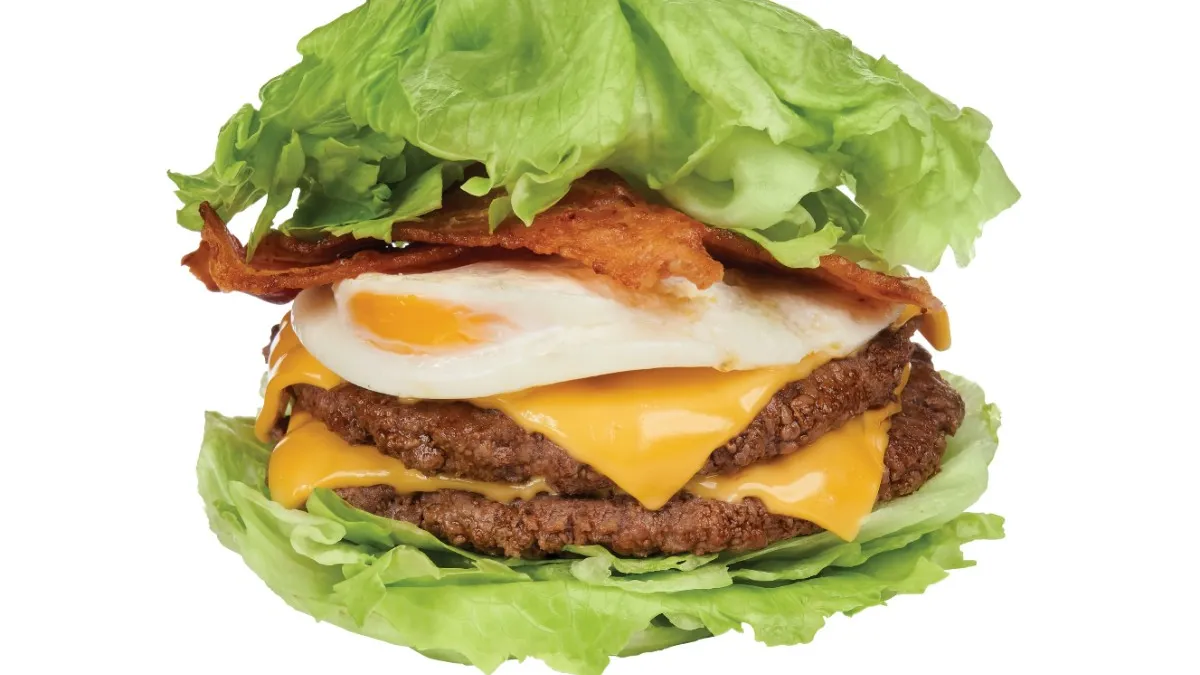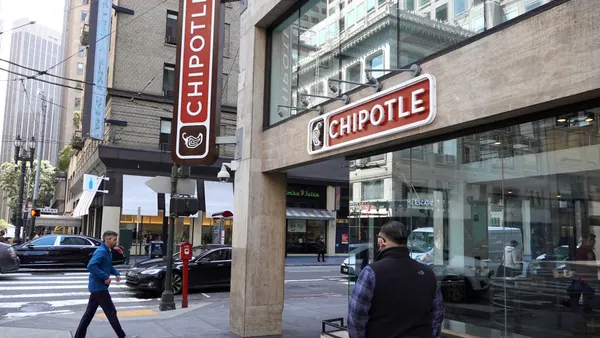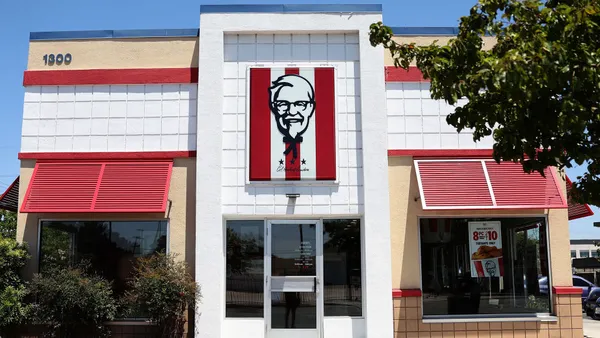Dive Brief:
- Sixty-three percent of millennials are trying to add plant-based foods to their diet, according to a survey from YouGov and Whole Foods Market reported by Forbes.
- More than 60% of survey respondents between ages 22 and 37 believe that their food choices have an impact on the environment and want to take steps to reduce any negative impacts.
- Sixty-three percent of respondents are also looking to eat unprocessed foods.
Dive Insight:
The plant-based diet is having a moment, with a recent report from Grubhub showing that vegan-friendly dish orders have increased 25% so far this year compared to the same period last year.
A number of companies have stepped forward to capitalize on a growing group of plant-based consumers. Beyond Meat and Impossible Foods made a meteoric entrance with their plant-based meat substitutes, now offered nationwide at fast food chains like Carl's Jr. and Burger King, but they're coming under increasing fire for being highly processed and containing a large number of ingredients, many of which consumers don't recognize or desire. The Beyond Burger, for example, has 18 ingredients while the Impossible Burger has 21. Beyond Meat relies on pea protein isolate, which some sources allege can be unhealthy if over-consumed, while Impossible Foods relies on soy and potato proteins.
While Beyond Meat does not use GMO ingredients, Impossible Foods uses a GMO-derived yeast called heme as its main ingredient. Consumers largely remain skeptical about GMO food, with some avoiding it altogether. This may not bode well for millennials apparent distaste for processed products and could be a roadblock that investors failed to anticipate when they poured millions into both companies. Still, the ingredient lists of alternative meat products haven't stopped diners from clamoring to try the next big meatless restaurant product, such as KFC's plant-based chicken, which sold out in a matter of hours.
Given the degree of investor confidence in this product category — Impossible Foods raised $300 million in funding in May, while Beyond Meat went public and saw a 163% rise in share prices that same month — restaurant partnerships are likely to continue. Beyond Meat's sales to foodservice brands and restaurant chains spiked almost 500% in the first fiscal quarter of 2019, for example.
Restaurants should be wary of advertising these products as healthier than their traditional meat counterparts, however. The modern diner is suspicious of health-washing and values brand transparency. Giving customers the chance to try an innovative new product, whether it's from a major manufacturer or a plant-based substitute made in-house, should be enough of a draw for diners looking to cut back on meat for environmental or health reasons.













